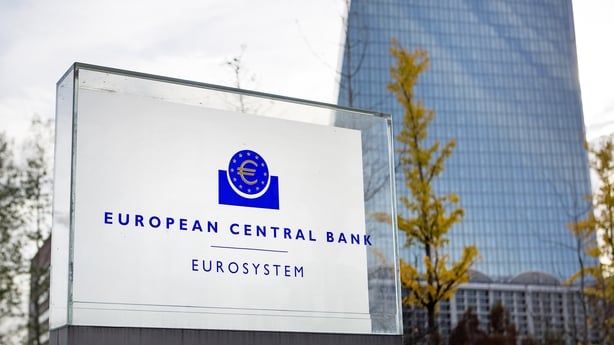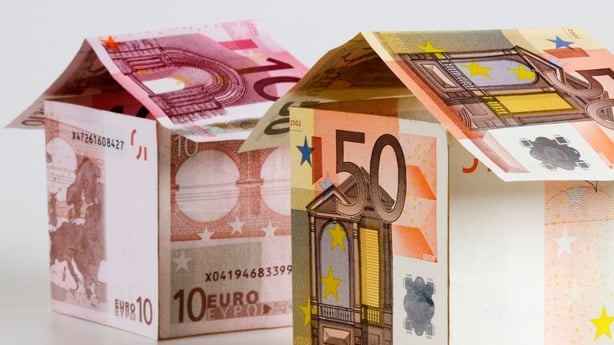The European Central Bank raised borrowing costs to their highest level in 22 years today and left the door open to more hikes, extending its fight against inflation that remains stubbornly high even as the euro zone economy flags.
The ECB increased its key interest rate - the one banks pay to park cash securely at the central bank - for the eighth consecutive time, by 25 basis points to 22 year-high of 3.5%.
"The key ECB interest rates will be brought to levels sufficiently restrictive to achieve a timely return of inflation to the 2% medium-term target and will be kept at those levels for as long as necessary," ECB President Christine Lagarde said at a press conference following the decision.
The central bank for the 20 countries that share the euro also said it expected inflation to stay above its 2% target through 2025 and hinted once again at more rate hikes in the coming months.
It raised its 2023 and 2024 projections for "core" inflation, excluding volatile energy and food, which the ECB watches closely.
Lagarde said wage rises and companies pushing up prices to increase their profits are becoming an increasingly important driver of inflation.
"Inflation has been coming down but is projected to be too high, for too long," she said.
The ECB's latest hike followed Wednesday's first pause in U.S. rate rises in over a year - a signal to investors around the world that the current tightening cycle across developed economies is nearing an end, even if a little more U.S. tightening is still possible.
Euro zone inflation has been moderating for months, courtesy of lower energy prices and the steepest increase in rates in the ECB's 25-year history, but remains unacceptably high for the ECB at 6.1%, with underlying price growth only starting to slow.
Growth, meanwhile, is at best stagnating.
The upwards revision to inflation forecasts for this year, the next and 2025 - when it was still expected to remain above the central bank's target, at 2.2% - surprised economists.
Euro zone government bond yields and the euro rose as traders bet on higher interest rates.
"Barring a material change to our baseline, it is very likely the case that we will continue to increase rates in July," Lagarde said. "We are not thinking about pausing, as you can tell."
Mixed picture

While signs that economic growth is slowing would normally augur a pause, the ECB has been taking its own projections with a pinch of salt after years in which they missed the mark.
Instead, rate-setters have focused on actual economic data that have been painting a mixed picture.
Two quarters of contraction in industrial powerhouse Germany dragged the euro zone into a shallow recession last winter and the economy is likely to eke out only modest growth this year.
But unemployment is at record lows and wage growth is picking up, even if it still lags inflation.
Headline price growth has been falling fast after hitting double-digits late last year. But underlying prices, most notably for services, have yet to show the decisive drop ECB policymakers have said they would need to see before taking their foot off the monetary brake.
Higher borrowing costs are curbing demand for credit from households and companies as well as banks' willingness to lend, but consumption is holding up well in nominal terms.
"The Governing Council's past rate increases are being transmitted forcefully to financing conditions and are gradually having an impact across the economy," Lagarde said.
While the opposing factors are likely to have provided ammunition to both sides of the ECB's Governing Council - the hawkish majority that has been pushing for more rate hikes remain in the driving seat.
"Are we done? Have we finished the journey? No. We're not at our destination. Do we still have ground to cover? Yes, we still have ground to cover," Lagarde said.
What will today's hike mean for mortgage holders?

Tracker customers will see an almost immediate hike in their mortgage rate of another 0.25 percentage points.
"Those paying a margin of 1% will now be paying 5% for example," explained Daragh Cassidy, of price comparison website Bonkers.ie.
"In money terms, if you have €100,000 remaining on your tracker your repayments will go up by around another €12 or €13 a month. If you have €200,000 outstanding it'll be around €25 more.
"But when all increases since last July are taken into account, tracker customers are now paying several hundred euro more each month," he said.
Mr Cassidy added that these customers were enjoying "rock-bottom" rates for many years when the rest of the country wasn't.
Those on variable rates are also likely to see a hike in their repayments soon.
The main banks in Ireland have been slow at passing on the recent ECB rate hikes to their variable-rate customers - partly because these rates were so high to begin with.
"Permanent TSB and Bank of Ireland haven't hiked their variable rates at all, but this is unlikely to last now that rates are at 4%," Mr Cassidy pointed out.
"Variable-rate customers at all the main banks could see a 0.25 percentage point increase to their mortgage rate or slightly more over the coming weeks. Again, if you have €200,000 outstanding on your mortgage you’ll be looking at paying around €25 more a month," he explained.
Those on fixed rates who are due to come to the end of their fixed rate within the next two years need to start budgeting for higher repayments, Mr Cassidy said.
"This is because the rate they're paying now is likely to be a lot lower than the rate they’ll get when they come to re-fix.
"For example anyone who took out a fixed rate over the past three or four years will likely be paying a rate of between 2% and 3.5%. However most fixed rates are now between 3.5% and 5% - and are likely to go higher after today’s announcement," he added.
We need your consent to load this rte-player contentWe use rte-player to manage extra content that can set cookies on your device and collect data about your activity. Please review their details and accept them to load the content.Manage Preferences
Speaking on Morning Ireland earlier, the Chief Economist at the Institute of International and European Affairs said the ECB plan to increase interest rates to tackle inflation is having some effect but not enough.
Dan O'Brien said he anticipates another increase next month.
The question is whether there is another increase in September, Mr O'Brien said, because we "could be at the end by then."
Mr O'Brien said the upward curve isn't flattening and until the trend in core inflation reduces, "they are going to be very worried in Frankfurt."
He likened the interest rate increases to hitting the brake of a car. This brake should slow down inflation, he said.
However, he added, economists, including central bankers, have been 'terrible' about predicting recent inflation trends and there are concerns that economies will stall if this brake is hit too hard.
"We've come through a terrible winter, which by all analysis should have caused us to have a deep recession in Europe, wonderfully and resiliently. And remarkably, we've come through that. And the economy is still strong in Europe," he said.
"But that also means inflation is still around so until inflation starts coming down, and there's no really good signs that the underlying inflation situation is improving, the European Central Bank is going to keep touching on that brake," he added.
